KARACHI:
Major General Syed Ali Hamid’s Sahibzada Yaqub Khan: Pursuits and Experiences as Prisoner of War, published by Paramount, 2022, tell us for the first time what happened to the great man during the Second World War, and how he came out of it. On the death of this incredible man many tributes were paid.
Teresita C. Schaffer and Howard Schaffer of Brookings wrote on Yaqub Khan (1920-2016): “His death at 95 leaves the world a poorer and less colourful place. We will let others write about his storied career—scion of the princely house of Rampur in central India, lieutenant general in the Pakistan army and several times foreign minister of Pakistan. Yaqub’s earlier career was close to our hearts. He had been Pakistan’s military commander in East Pakistan from 1969 until September 1971. We heard countless Yaqub stories, about his sympathetic approach to the Bengalis and about his decision to resign when he no longer felt able to carry out his government’s policy. His proficiency in Bangla was astounding, coming both from people we met around town and especially from the professor who taught us the language, as he had taught Yaqub a decade-and-a-half earlier.”
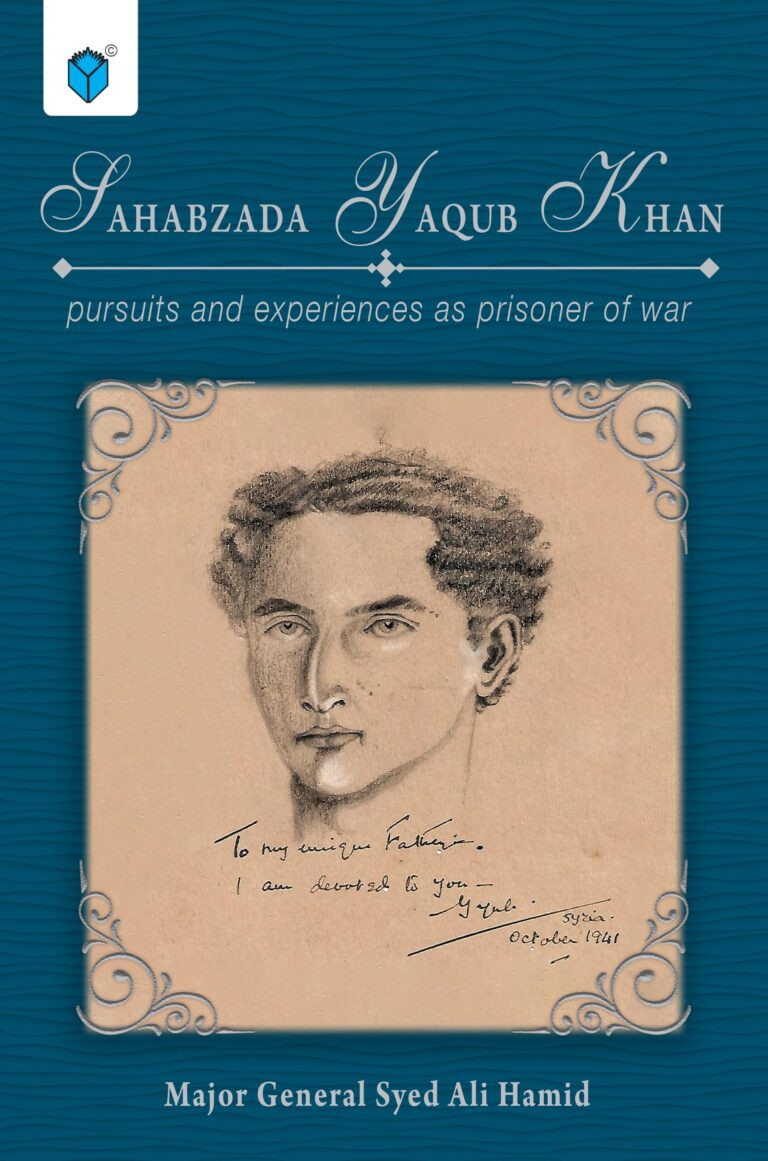
Origin of the book
In 2022, Major General Syed Ali Hamid has done something that all Pakistanis must admire: a much-missed detailed account of Yaqub’s capture by the Germans during the Second World War. He writes:” A year ago, Sahibzada Yaqub Khan’s son Samad generously provided me soft copies of all his father’s albums, and in one folder I found a gem—his father’s wartime log as a POW. I couldn’t resist doing a rapid scan through its 60 pages. Some POWs wrote a diary to maintain sanity and others to keep track of time. Yaqub Khan’s wartime log was not a sequential record of thoughts and events but had a lot of details on topics that interested him while he was a POW, e.g., recipes; French cuisine and wines; lists of books on languages, philosophy; and where to shop and eat in London, Bombay, and Calcutta. Here were also over five pages of names with addresses of some of his fellow POWs. In one section there were a few caricatures. There were photographs, and details of officers of his regiment and poems written by his fellow inmates. There were also verses of the 19th-century poet Ghalib and in French, mostly lamenting the situation he was in.”
Sahibzada Yaqub Khan was the son of Sahibzada Sir Abdus Samad Khan from the State of Rampur. The state was founded in 1774 by Nawab Faizullah Khan of the Rohilla tribe. The Rohillas had migrated from Pashto-speaking areas to North India between the 17th and 18th centuries during the decline of the Mughal Empire and gained control of a region that came to be known as Rohilkhand. Under the tutelage of the British, the royal line of Rampur established one of the richest states in India through their visionary ideas.
Sir Samad belonged to a very distinguished lineage of Najib Khan, a Yousafzai Pathan. He was an ally of Ahmed Shah Durrani and was with him in the Third Battle of Panipat, which changed the course of the Indian history. He founded the State of Najibabad and acquired the title of Najib-ud-Daula, but during the rebellion of 1857, his successor fell foul of the British and was executed. The family fled Najibabad and was given shelter by their kinsmen who were the rulers of Rampur.
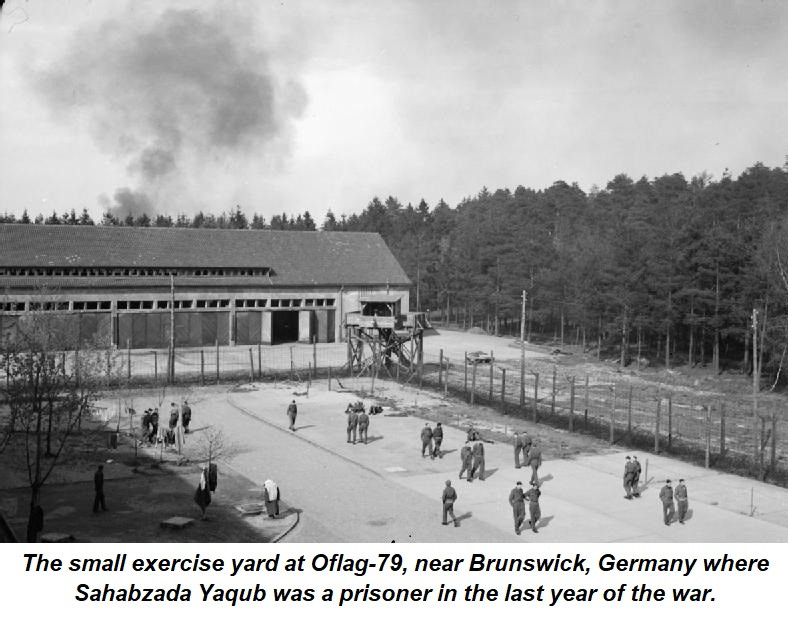
Entry into the military
At the age of 12, Yaqub was admitted into the Prince of Wales Royal Indian Military College (RIMC), Dehradun, which was established as a feeder institution for the Indian Military Academy (IMA). After entering an all-India open competition, he achieved his childhood ambition and was admitted into the IMA in 1939.
Samad drove down to bid farewell to his beloved youngest son who was departing to fight in the African Sahara. His brigade had been brought to Egypt as reinforcement. Wavell had just won a resounding victory against the Italians and captured Benghazi, but most of his best troops had recently been shipped to Greece. A brigade was placed under the 7th Armoured Division, which was commanded by Maj-Gen Frank Messervy. After independence, he would be the first C-in-C of the Pakistan Army.
At the battle of Bir Hachiem in 1942, Yaqub and his regiment were captured by the Germans. As POW Yaqub trudged through the sand in a daze and was finding it difficult to accept the fact that suddenly he was a POW. It was even more difficult to accept that his regiment had been obliterated and the brigade overrun. He did not know it then but the stand-unto-death by the brigade and its sacrifice of which he was a part had a significant effect on Rommel’s forces. The Axis lost close to 80 tanks of which the 2nd Field Regiment could claim a large share.
It was a perilous voyage from North Africa to Italy to the POW camp. The allies were on the lookout for Axis ships and planes, and since the beginning of the year, 1,600 to 1,800 POWs from the UK and dominions had drowned after their ships were torpedoed. The previous December, an Italian cargo ship carrying 2,000 POWs had been torpedoed by a Royal navy submarine. It was estimated that between 300 to 500 POWs drowned. A few months after Yaqub crossed the Mediterranean, the other cargo ship was sunk in which 336 POWs were drowned.
Yaqub Khan and the great books
With Yaqub was Lt Tikka Khan, 2nd Field Regiment, who had also been captured. The Italians had the courtesy to seat the officers in second-class compartments, but the blinds were drawn, and they had no idea where they were heading. After a journey of 24 hours in 1942, they steamed into the large railway junction of Sulmona, which is located in the Abruzzi region east of Rome.
Discussions were organized on a variety of subjects, and it was here that Yaqub was introduced to the subject of philosophy and its geniuses like Plato, Friedrich Nietzsche, and Rene Descartes as well their works. He realized that the study of philosophy enhanced a person’s problem-solving capacities. It would also assist him in analysing concepts and problems and contribute to his capacity to organise ideas and issues, deal with questions of value, and extract what is essential from large quantities of information. It opened a window in his mind that was like an awakening.
One of the talks that caught Yaqub’s imagination was by a linguist about the history of the German language. Yaqub decided to learn German so that he could develop a better understanding of Thus Spake Zarathustra, Nietzsche’s book in its original form.
Yaqub’s favourite book was Plato’s The Republic because it inspired him. Plato employs the metaphor of human beings, implying that different races are confined in their individual caverns, each with their languages, religions, and socio-cultural traditions. They have to free themselves by entering the world of light (for light read knowledge) outside and broadening their horizons. That allegory was also quite pertinent to the predicament of an inmate, with the POW camp representing the cave. The metaphor bolstered Yaqub’s desire to study different languages, cultures, as well as read the works of great philosophers in their native languages.
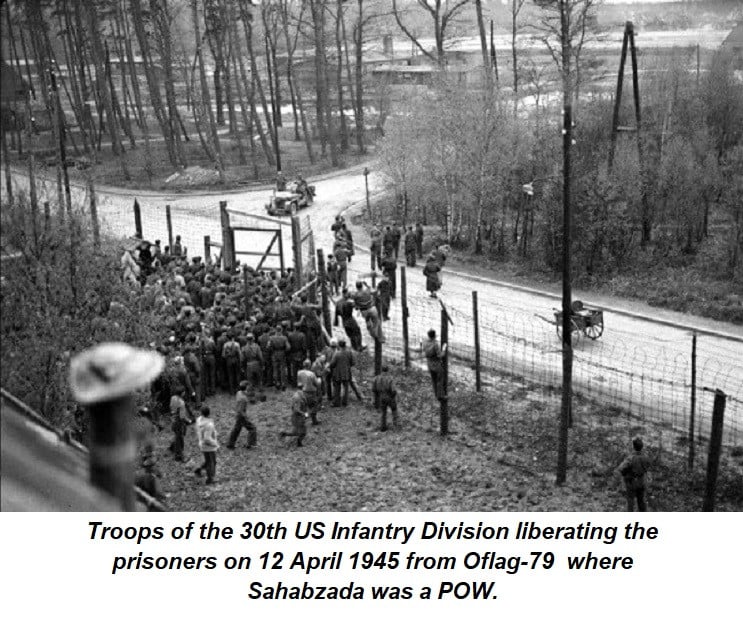 An unsuccessful escape
An unsuccessful escape
On 23 November 1943, Yaqub’s brother Yusuf received a telegram from the Adjutant General’s Branch in Delhi with the electrifying information: “Your brother 2nd Lt. SM Yaqub Khan has been reported escaped from enemy hands.” The letter was addressed to Yusuf because he was based in Rampur. After returning from Cambridge in 1939, he had accepted the post of professor of geography at the Aligarh Muslim University, but after Sir Samad’s death in early 1943, Yusuf had shifted to Rampur and taken up the appointment of cabinet secretary to the state government.
Yaqub was recaptured in the last week of December. In his haversack, the German officer commanding the detachment found two books. One was the Diwan of Ghalib, the other was a German edition of Nietzsche’s Thus spake Zarashtustra. “You are an Indian,” commented the German and asked. “Why are you fighting the Germans when you are reading our Nietzsche whom even we Germans have difficulty in understanding?” Yaqub replied in German with the opening lines from the prologue. The 30-year-old Zarasthustra withdraws to a cave in the mountains to meditate and comes out after ten years, “strong and shining with an inner light as the morning sun that rises from the dark mountains.” It was the same philosophy that Yaqub had gleaned from Plato’s The Republic in which he drew a comparison between the PWO camp and the cave. Yaqub had made a desperate but unsuccessful effort to exit the cave, but it was destined that his attempt to escape would be unsuccessful. He still required to spend more time in captivity to emerge strong and shining.
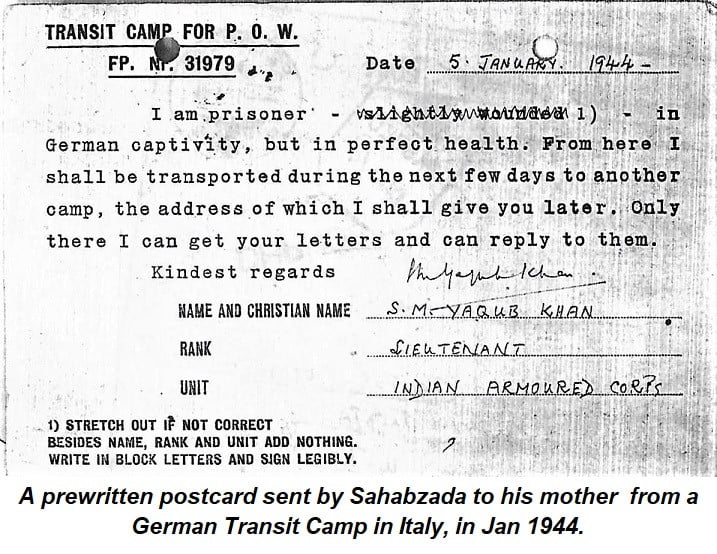
A POW in Czechoslovakia
The POW camp in Czechoslovakia held 1,580 officers who were mostly British captured in North Africa and the Greek Islands. There were 245 Indian officers and VCOs, and a few Greek, French, and American POWs were thrown in for good measure. The number of officers from the UK and its allies who were captured during the war is difficult to estimate. However, a breakdown of the POWs reveals the rank scale in just one of the officer’s camps—two colonels, 21 lieutenant colonels, 121 majors, 441 captains, and 996 lieutenants.
Shortly after arriving at the POW camp, Yaqub wrote a postcard to his mother in which he expressed his disappointment at his recapture. He laments, “It’s extremely bad luck my not being able to get through. I tried everything I could, but I couldn’t get past the German defences.” He does, however, end by assuring her that he was healthy and in great spirits. The fate of this letter was better than the previous one. It was written on 29 January 1944, and it arrived in Rampur two and a half months later.
Three officers who were more fortunate were Yahya Khan, Ashraf Jan, and Yaqub’s friend el Effendi. They travelled along the eastern flank of the Apennines Mountains and avoided Germans by hiding in forests or taking refuge with Italian peasants. After travelling 450 kilometres, they headed for Castel Di Sangro where the River Sangro was fordable and managed to cross over to the trenches of an Indian battalion.
Yahya Khan was left with only one shoe and was carried part of the way by Fazaldad Khan Janjua of his regiment. While Yahya was assigned to GHQ in Delhi, el Effendi and Ashraf Jan re-joined the force that was now fighting in Burma. Unfortunately, after the war, Ashraf Jan was killed while serving in Indonesia. It was believed that he was murdered by a jealous British officer.
Yaqub Khan was able to tap into some knowledgeable minds and benefit from their wisdom by attending numerous discussions on a variety of topics. He also had the opportunity to improve his German and began learning Russian.
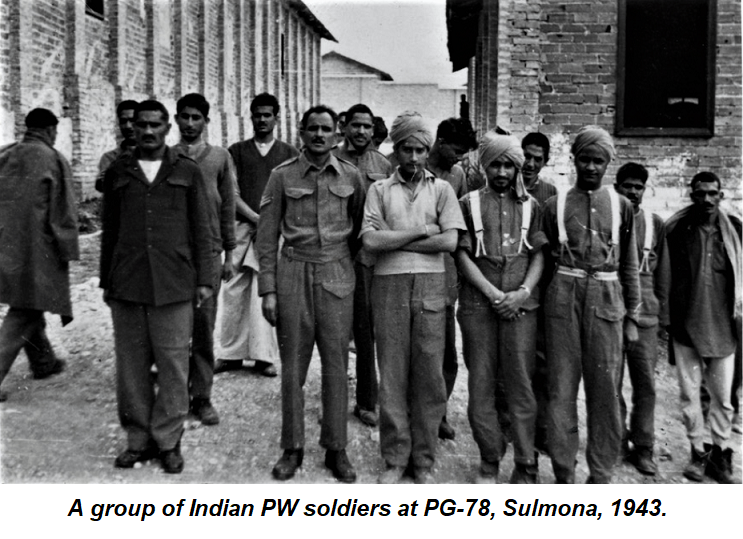
With Tolstoy at last
Yaqub got hold of a Russian original of War and Peace by Leo Tolstoy and read the Russian version while referring to the English translation when he could not understand a phrase or sentence. He found this contextual approach very useful in learning the language. Tolstoy’s two epilogues, particularly the second, are some of the most challenging parts of the novel and became the focus of intensive study by Yaqub. What appealed to him was Tolstoy’s assertion that no one individual can change the course of history. History is determined by so many minute decisions by so many people, no single person, however powerful, can bend history to his or her will.
Postscript: After 1947, a new chapter had opened for Yaqub Khan in Pakistan and over the next 40 years, his career would follow an increasingly vertical trajectory in the army up to the rank of lieutenant general. After retirement, he was appointed as ambassador in three key countries, USA, USSR, and France, and then served three heads of the state as one of Pakistan’s most successful ministers for foreign affairs. This part of his biography needs to be written.
Khaled Ahmed is the consulting editor for Newsweek Pakistan. All information and facts are the sole responsibility of the writer.
Major General Syed Ali Hamid’s Sahibzada Yaqub Khan: Pursuits and Experiences as Prisoner of War, published by Paramount, 2022, tell us for the first time what happened to the great man during the Second World War, and how he came out of it. On the death of this incredible man many tributes were paid.
Teresita C. Schaffer and Howard Schaffer of Brookings wrote on Yaqub Khan (1920-2016): “His death at 95 leaves the world a poorer and less colourful place. We will let others write about his storied career—scion of the princely house of Rampur in central India, lieutenant general in the Pakistan army and several times foreign minister of Pakistan. Yaqub’s earlier career was close to our hearts. He had been Pakistan’s military commander in East Pakistan from 1969 until September 1971. We heard countless Yaqub stories, about his sympathetic approach to the Bengalis and about his decision to resign when he no longer felt able to carry out his government’s policy. His proficiency in Bangla was astounding, coming both from people we met around town and especially from the professor who taught us the language, as he had taught Yaqub a decade-and-a-half earlier.”

Origin of the book
In 2022, Major General Syed Ali Hamid has done something that all Pakistanis must admire: a much-missed detailed account of Yaqub’s capture by the Germans during the Second World War. He writes:” A year ago, Sahibzada Yaqub Khan’s son Samad generously provided me soft copies of all his father’s albums, and in one folder I found a gem—his father’s wartime log as a POW. I couldn’t resist doing a rapid scan through its 60 pages. Some POWs wrote a diary to maintain sanity and others to keep track of time. Yaqub Khan’s wartime log was not a sequential record of thoughts and events but had a lot of details on topics that interested him while he was a POW, e.g., recipes; French cuisine and wines; lists of books on languages, philosophy; and where to shop and eat in London, Bombay, and Calcutta. Here were also over five pages of names with addresses of some of his fellow POWs. In one section there were a few caricatures. There were photographs, and details of officers of his regiment and poems written by his fellow inmates. There were also verses of the 19th-century poet Ghalib and in French, mostly lamenting the situation he was in.”
Sahibzada Yaqub Khan was the son of Sahibzada Sir Abdus Samad Khan from the State of Rampur. The state was founded in 1774 by Nawab Faizullah Khan of the Rohilla tribe. The Rohillas had migrated from Pashto-speaking areas to North India between the 17th and 18th centuries during the decline of the Mughal Empire and gained control of a region that came to be known as Rohilkhand. Under the tutelage of the British, the royal line of Rampur established one of the richest states in India through their visionary ideas.
Sir Samad belonged to a very distinguished lineage of Najib Khan, a Yousafzai Pathan. He was an ally of Ahmed Shah Durrani and was with him in the Third Battle of Panipat, which changed the course of the Indian history. He founded the State of Najibabad and acquired the title of Najib-ud-Daula, but during the rebellion of 1857, his successor fell foul of the British and was executed. The family fled Najibabad and was given shelter by their kinsmen who were the rulers of Rampur.

Entry into the military
At the age of 12, Yaqub was admitted into the Prince of Wales Royal Indian Military College (RIMC), Dehradun, which was established as a feeder institution for the Indian Military Academy (IMA). After entering an all-India open competition, he achieved his childhood ambition and was admitted into the IMA in 1939.
Samad drove down to bid farewell to his beloved youngest son who was departing to fight in the African Sahara. His brigade had been brought to Egypt as reinforcement. Wavell had just won a resounding victory against the Italians and captured Benghazi, but most of his best troops had recently been shipped to Greece. A brigade was placed under the 7th Armoured Division, which was commanded by Maj-Gen Frank Messervy. After independence, he would be the first C-in-C of the Pakistan Army.
At the battle of Bir Hachiem in 1942, Yaqub and his regiment were captured by the Germans. As POW Yaqub trudged through the sand in a daze and was finding it difficult to accept the fact that suddenly he was a POW. It was even more difficult to accept that his regiment had been obliterated and the brigade overrun. He did not know it then but the stand-unto-death by the brigade and its sacrifice of which he was a part had a significant effect on Rommel’s forces. The Axis lost close to 80 tanks of which the 2nd Field Regiment could claim a large share.
It was a perilous voyage from North Africa to Italy to the POW camp. The allies were on the lookout for Axis ships and planes, and since the beginning of the year, 1,600 to 1,800 POWs from the UK and dominions had drowned after their ships were torpedoed. The previous December, an Italian cargo ship carrying 2,000 POWs had been torpedoed by a Royal navy submarine. It was estimated that between 300 to 500 POWs drowned. A few months after Yaqub crossed the Mediterranean, the other cargo ship was sunk in which 336 POWs were drowned.
Yaqub Khan and the great books
With Yaqub was Lt Tikka Khan, 2nd Field Regiment, who had also been captured. The Italians had the courtesy to seat the officers in second-class compartments, but the blinds were drawn, and they had no idea where they were heading. After a journey of 24 hours in 1942, they steamed into the large railway junction of Sulmona, which is located in the Abruzzi region east of Rome.
Discussions were organized on a variety of subjects, and it was here that Yaqub was introduced to the subject of philosophy and its geniuses like Plato, Friedrich Nietzsche, and Rene Descartes as well their works. He realized that the study of philosophy enhanced a person’s problem-solving capacities. It would also assist him in analysing concepts and problems and contribute to his capacity to organise ideas and issues, deal with questions of value, and extract what is essential from large quantities of information. It opened a window in his mind that was like an awakening.
One of the talks that caught Yaqub’s imagination was by a linguist about the history of the German language. Yaqub decided to learn German so that he could develop a better understanding of Thus Spake Zarathustra, Nietzsche’s book in its original form.
Yaqub’s favourite book was Plato’s The Republic because it inspired him. Plato employs the metaphor of human beings, implying that different races are confined in their individual caverns, each with their languages, religions, and socio-cultural traditions. They have to free themselves by entering the world of light (for light read knowledge) outside and broadening their horizons. That allegory was also quite pertinent to the predicament of an inmate, with the POW camp representing the cave. The metaphor bolstered Yaqub’s desire to study different languages, cultures, as well as read the works of great philosophers in their native languages.

On 23 November 1943, Yaqub’s brother Yusuf received a telegram from the Adjutant General’s Branch in Delhi with the electrifying information: “Your brother 2nd Lt. SM Yaqub Khan has been reported escaped from enemy hands.” The letter was addressed to Yusuf because he was based in Rampur. After returning from Cambridge in 1939, he had accepted the post of professor of geography at the Aligarh Muslim University, but after Sir Samad’s death in early 1943, Yusuf had shifted to Rampur and taken up the appointment of cabinet secretary to the state government.
Yaqub was recaptured in the last week of December. In his haversack, the German officer commanding the detachment found two books. One was the Diwan of Ghalib, the other was a German edition of Nietzsche’s Thus spake Zarashtustra. “You are an Indian,” commented the German and asked. “Why are you fighting the Germans when you are reading our Nietzsche whom even we Germans have difficulty in understanding?” Yaqub replied in German with the opening lines from the prologue. The 30-year-old Zarasthustra withdraws to a cave in the mountains to meditate and comes out after ten years, “strong and shining with an inner light as the morning sun that rises from the dark mountains.” It was the same philosophy that Yaqub had gleaned from Plato’s The Republic in which he drew a comparison between the PWO camp and the cave. Yaqub had made a desperate but unsuccessful effort to exit the cave, but it was destined that his attempt to escape would be unsuccessful. He still required to spend more time in captivity to emerge strong and shining.

A POW in Czechoslovakia
The POW camp in Czechoslovakia held 1,580 officers who were mostly British captured in North Africa and the Greek Islands. There were 245 Indian officers and VCOs, and a few Greek, French, and American POWs were thrown in for good measure. The number of officers from the UK and its allies who were captured during the war is difficult to estimate. However, a breakdown of the POWs reveals the rank scale in just one of the officer’s camps—two colonels, 21 lieutenant colonels, 121 majors, 441 captains, and 996 lieutenants.
Shortly after arriving at the POW camp, Yaqub wrote a postcard to his mother in which he expressed his disappointment at his recapture. He laments, “It’s extremely bad luck my not being able to get through. I tried everything I could, but I couldn’t get past the German defences.” He does, however, end by assuring her that he was healthy and in great spirits. The fate of this letter was better than the previous one. It was written on 29 January 1944, and it arrived in Rampur two and a half months later.
Three officers who were more fortunate were Yahya Khan, Ashraf Jan, and Yaqub’s friend el Effendi. They travelled along the eastern flank of the Apennines Mountains and avoided Germans by hiding in forests or taking refuge with Italian peasants. After travelling 450 kilometres, they headed for Castel Di Sangro where the River Sangro was fordable and managed to cross over to the trenches of an Indian battalion.
Yahya Khan was left with only one shoe and was carried part of the way by Fazaldad Khan Janjua of his regiment. While Yahya was assigned to GHQ in Delhi, el Effendi and Ashraf Jan re-joined the force that was now fighting in Burma. Unfortunately, after the war, Ashraf Jan was killed while serving in Indonesia. It was believed that he was murdered by a jealous British officer.
Yaqub Khan was able to tap into some knowledgeable minds and benefit from their wisdom by attending numerous discussions on a variety of topics. He also had the opportunity to improve his German and began learning Russian.

With Tolstoy at last
Yaqub got hold of a Russian original of War and Peace by Leo Tolstoy and read the Russian version while referring to the English translation when he could not understand a phrase or sentence. He found this contextual approach very useful in learning the language. Tolstoy’s two epilogues, particularly the second, are some of the most challenging parts of the novel and became the focus of intensive study by Yaqub. What appealed to him was Tolstoy’s assertion that no one individual can change the course of history. History is determined by so many minute decisions by so many people, no single person, however powerful, can bend history to his or her will.
Postscript: After 1947, a new chapter had opened for Yaqub Khan in Pakistan and over the next 40 years, his career would follow an increasingly vertical trajectory in the army up to the rank of lieutenant general. After retirement, he was appointed as ambassador in three key countries, USA, USSR, and France, and then served three heads of the state as one of Pakistan’s most successful ministers for foreign affairs. This part of his biography needs to be written.
Khaled Ahmed is the consulting editor for Newsweek Pakistan. All information and facts are the sole responsibility of the writer.

